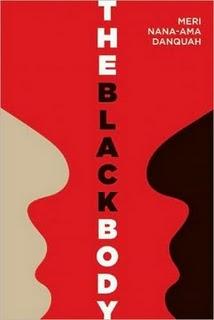The Black Body

Danquah’s literary libation to the Black body consists of a collaboration of folks—Black, White, and both—all of whom seek to convey what it’s like to live in one, be a part of one, and be affected by one. Before opening The Black Body, I already had preconceived notions of how I thought it would read, considering the fact that I have a Black body, myself. I should have known better. It wasn’t necessarily the topics covered that surprised me, but the way in which they were interpreted and the eloquence with which some of the authors conveyed the subject.
Nzingha Clarke’s passage about hands, her father’s in particular, captured the luxury we, as a generation, have in being able to take our hands for granted. The generations of our parents and grandparents were primarily laborers, and only a few were privileged enough to be able to use their hands to write or teach. Their hands were used to pick, wash, and cook. Ours, however, have inherited the choices most of them never got to make. Clarke’s nonchalance for the appearance of her hands is also a luxury in which our grandmothers and great grandmothers took much care, through the use of lotions and oils, to disguise the obligations of their hands. The hands of Clarke’s father finally got to rest when he was put to rest, and Clarke was able to read the book of his life through his hands.
Another passage that came to be one of my favorites was that of Joel Lipman. I may have been wholly offended with anyone else’s attempts to identify with the Black plight. For some reason, Lipman’s poetic account of his youth through sports was creative, witty, and real. In his essay, Lipman states, “Society and race are a fucked up set of twins,” and in reading his contribution is it no clearer. My reason for taking slight offense is Lipman’s use of the term Black Moses to describe Roosevelt Taylor, and in equating him to an animal in some ways. Perhaps I was offended because I am so used to hearing White people equate Black athletes to machines or animals, and this was simply a flashback. Nevertheless, Lipman seemed to be identifying more than describing, and I appreciated that much.
What I took from Danquah’s The Black Body was a subject that touches, creates, and affects the lives that it contacts.
sounds like a very thought provoking book well worth being used in a reading group focusing on social justice.
bstilwell12 at comcast dot net